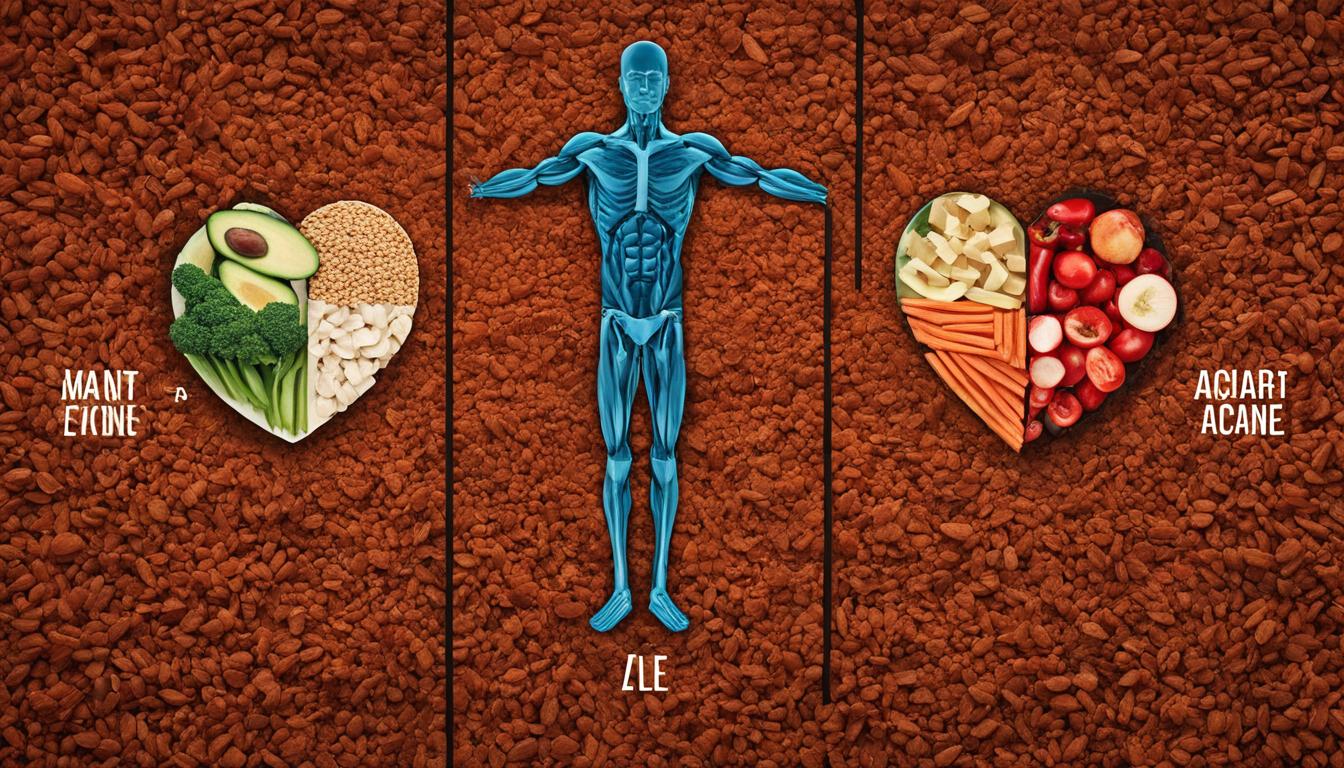How Do Diets Affect Your Health? Quick Facts for Instant Clarity

When it comes to our overall well-being, the relationship between diets and health cannot be ignored. Our dietary choices have a significant impact on our health, and understanding the effects of different diets is crucial. From the influence of eating habits on our well-being to the health consequences of various dietary patterns, the significance of nutrition in our lives cannot be overstated.
Many diet trends claim to have profound effects on brain function and overall health. From intermittent fasting to the ketogenic diet, the MIND diet, and the Bulletproof Coffee diet, these eating plans are often characterized by the elimination of processed foods and a focus on nutrient-rich foods.
While there is anecdotal evidence and some short-term studies supporting the cognitive benefits of these diets, there is still a need for long-term, randomized trials to better understand their impact on our health. However, certain patterns have emerged and shed light on the connection between diets and health.
The removal of certain food groups, particularly highly processed foods, can lead to improved mental clarity and the reduction of brain fog. Research suggests that a diet high in simple carbohydrates, such as the Western diet, can result in fluctuations in blood sugar levels, leading to fatigue and decreased cognitive function.
The ketogenic diet, which emphasizes fats and proteins, relies on ketones as an alternative energy source for the brain. This dietary approach has been associated with improved memory function. On the other hand, the MIND diet, a combination of the Mediterranean diet and the DASH diet, has been shown to have beneficial effects on brain health.
Inflammation caused by a poor diet can contribute to mood disorders such as anxiety and depression. Emerging research on the gut-brain connection suggests that the health of our gut can influence our mental well-being. Mindful eating and paying attention to our nutritional choices can play a role in improving our mental health.
In conclusion, the impact of diets on our health is undeniable. Optimal brain function and mental well-being require a well-balanced diet that includes complex carbohydrates, lean proteins, and healthy fats. By making conscious choices about what we eat, we can truly nourish our bodies and minds.
Key Takeaways
Diets can have a significant impact on cognitive function and mental clarity. Various diets, such as intermittent fasting, the ketogenic diet, and the MIND diet, claim to improve cognitive function and reduce brain fog. Anecdotal evidence and some short-term studies suggest that these diets can improve mental clarity and focus.
The elimination of processed foods and the emphasis on nutrient-rich foods are common features among these diets. The removal of certain food groups, particularly those high in sugars and carbohydrates, can result in more stable blood sugar levels and improved brain function.
The ketogenic diet, which relies on ketones as an alternative energy source for the brain, has been associated with improved memory function. The MIND diet, which combines the Mediterranean diet and the DASH diet, has been shown to have positive effects on brain health and may reduce the risk of cognitive decline.
Long-term, randomized trials are needed to fully understand the cognitive benefits and potential risks of these diets.
Diets can also have a significant impact on mental health and mood disorders. Research suggests that a diet high in processed foods and sugars can lead to inflammation in the body and brain, which may contribute to mood disorders like anxiety and depression.
During periods of stress and depression, people tend to either overeat or undereat, both of which can worsen symptoms and lead to a poor diet. However, eating a well-balanced diet that includes plenty of fruits, vegetables, and foods rich in omega-3 fatty acids, can support optimal mental health.
The gut-brain connection is an area of research that suggests the health of the gut can influence mental well-being. It is important to note that poor diet during periods of stress and depression can create a vicious cycle, but it can be overcome through mindful eating and seeking professional counseling when needed.

In Short, "How Do Diets Affect Your Health"?
Diets have a profound impact on various aspects of health, including cognitive function and mental well-being. Many diets claim to improve health by eliminating processed foods and focusing on nutrient-rich options. By removing certain food groups like sugars and carbohydrates, diets can lead to stable blood sugar levels and improved brain function.
For example, the ketogenic diet and the MIND diet have been associated with cognitive benefits. However, it's important to note that more research is needed to fully understand the effects and potential risks of these diets.
A poor diet, especially one high in processed foods and sugars, can contribute to mood disorders such as anxiety and depression. On the other hand, taking a mindful approach to eating and prioritizing a well-balanced diet can greatly support overall health and well-being.
So, when considering the impact of diets on your health, it's essential to choose nutritious food options and maintain a balanced diet that suits your individual needs. By doing so, you can optimize both your physical and mental well-being.